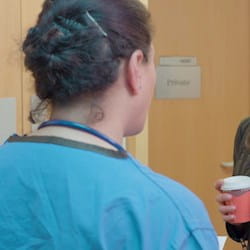MEDICAL practices need to evolve into "super GP practices" or networks that can pool resources and draw in specialist expertise from other professionals like pharmacists, geriatricians and psychiatrists.
This is one of the findings of a report by the Nuffield Trust entitled Is General Practice in Crisis? which draws on analysis of the latest data on GP services and the results of a separate survey of over 100 influential health and social care leaders.
The report points out that the number of one-doctor GP practices has halved in seven years, from 1,717 in 2006 to 891 in 2013, whilst the number of practices with 10 or more doctors has grown by over 75 per cent. Over three quarters (77 per cent) of the health and social care leaders surveyed believe that small GP practices are no longer fit for purpose.
The briefing also shows that reported funding for general practice has fallen by almost £300m in a single year to 2013/14 and its authors argue that general practices will need extra resources and support to link up and find new ways of meeting the different needs of their patients.
Mark Dayan, lead author and Nuffield Trust Policy Officer said: "Many GPs are already joining up to build successful networks with other healthcare professionals in their area. This doesn’t mean that the familiarity of local practices will be lost or that GPs will vanish from rural areas.
"Working in bigger, better-organised groups can carry the important neighbourhood presence that many GP surgeries have through tough times. But it will need politicians to give GPs time and support as they make the switch to scaled-up general practice fit for the future."
This page was correct at the time of publication. Any guidance is intended as general guidance for members only. If you are a member and need specific advice relating to your own circumstances, please contact one of our advisers.
Save this article
Save this article to a list of favourite articles which members can access in their account.
Save to library
